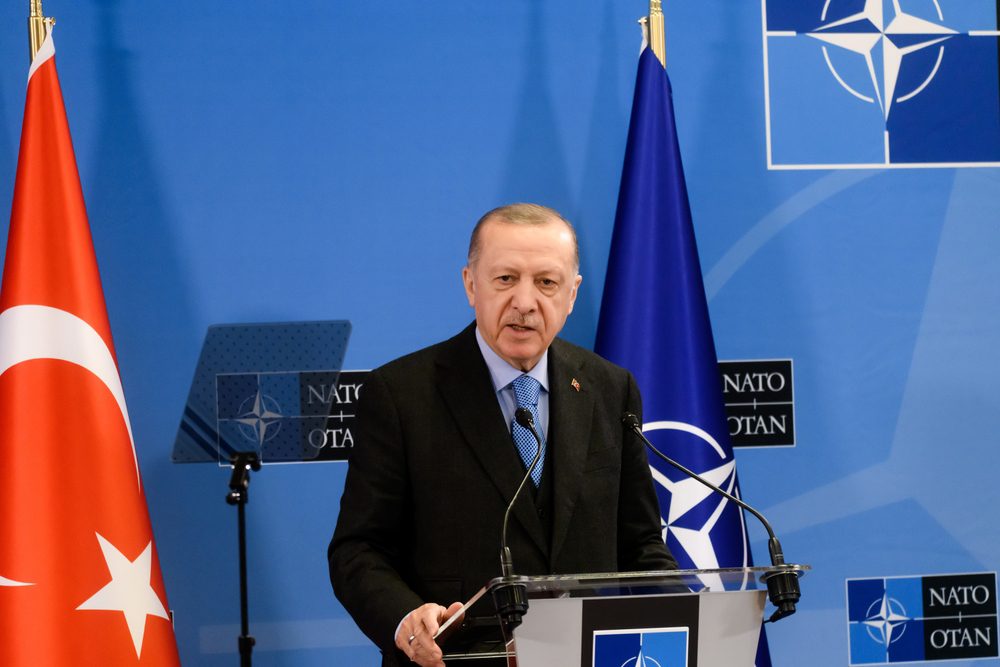
After expressing their desire to join the Atlantic alliance, Finland and Sweden were initially rejected. Their membership hung in the balance, waiting for a decision from Turkey, which had initially vetoed their entry in mid-May.
Turkish President Recep Tayyip Erdogan finally lifted his veto on Tuesday, June 28th, as the NATO summit opened in Madrid. “I am delighted to announce that we have an agreement that paves the way for Finland and Sweden to join NATO,” NATO Secretary General Jens Stoltenberg told reporters. NATO members are therefore able to ‘officially invite’ the two Nordic countries to join the alliance on Wednesday, June 29th.
Turkey expressed its opposition on 18 May 2022, in Brussels during a meeting of ambassadors of the alliance countries responsible for examining the application of the two northern European countries. Turkey was particularly targeting Sweden, which it reproached for its overly complacent attitude towards the Kurdish independence party, the PKK, as well as the armed Kurdish movements fighting in Syria.
The PKK is considered a terrorist organisation by Turkey, but also by Sweden and Finland. However, the anti-terrorism laws in Sweden are much more flexible than in Turkey. For example, it is not forbidden in Sweden to be a member of the PKK or to display PKK flags and insignia, with the result that pro-Kurdish demonstrations are regularly organised in Stockholm. This is unacceptable to Ankara. Furthermore, Turkey has repeatedly requested the extradition of Kurdish terrorists from Sweden and Finland, requests that have gone unrequited.
Since October 2019, Turkey has been under an arms embargo in retaliation for Erdogan’s military action in northern Syria. Ankara blames Stockholm for spearheading this discriminatory measure.
A few weeks ago, the unblocking of the export of American fighter planes to Turkey was explored as a possible compromise. Indeed, the purchase of Russian S-400 surface-to-air missiles by Turkey in 2019 had led to its exclusion from the American F-35 programme. However, this was not the bargaining chip that was finally chosen: Washington claims not to have made any concessions to Ankara to obtain the lifting of its veto.
Everything was therefore decided on the Kurdish issue. Turkey finally got ‘what it wanted,’ i.e., the “full cooperation” of Sweden and Finland against the PKK and its allies, according to the terms of the communiqué published by the Turkish presidency. Concretely, Sweden and Finland signed a trilateral memorandum, in which the two countries committed themselves “to fully support Turkey against threats to its national security.” They explicitly committed themselves in the text to “fight against the activities of the PKK.”
Sweden and Finland also promised to put in place “an extradition agreement with Turkey” and to “promptly and thoroughly examine pending deportation or extradition requests from Turkey,” Politico reports. In the wake of this, Ankara announced on Wednesday, June 29th, its intention to ask Finland and Sweden to extradite 33 people. The agreement worries the Kurdish community in Sweden, estimated at 100,000 people, who consider themselves ‘sacrificed’ on the altar of NATO.
Sweden and Finland finally promised to lift every kind of military embargo against Turkey.
In a statement issued by the White House, U.S. President Joe Biden welcomed the turnaround as a way to “strengthen NATO’s collective security” for the benefit of “the entire transatlantic alliance.”
The formal entry of the two countries must still be ratified by the parliaments of the 30 alliance member states and will therefore only take place at the end of a long process lasting several months.
